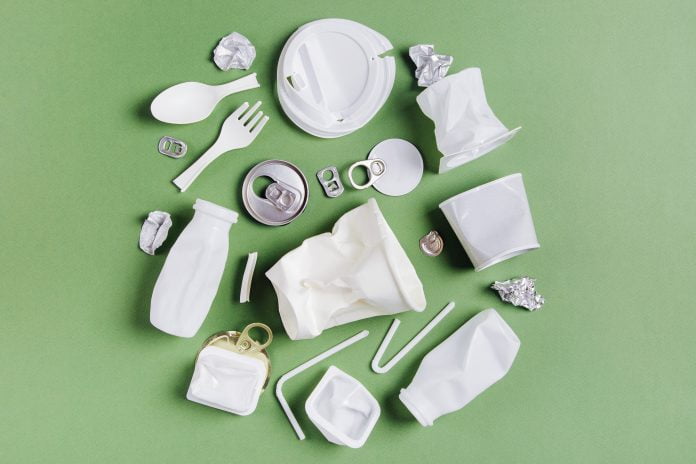ALDI Australia has published its inaugural ‘Plastics and Packaging Progress Report’, which outlines the supermarket’s “progress and transparency” towards achieving its goal of a 25 per cent reduction of plastics and packaging by 2025.
To meet its commitments, ALDI identified eliminating “problematic and unnecessary” single-use plastic as a “natural starting point”.
As part of this move, ALDI has swapped out single-use plastic tableware, plastic straws and cotton buds. In place of these, the retailer has introduced a new tableware range with plates and bowls made entirely of compostable sugar cane, and cutlery made from birchwood. By no longer selling single-use plastic tableware, ALDI says it has been able to save 322 tonnes of plastic from landfill. In the case of the cotton buds, it says that by the end of the year, consumers will find paper stems in place of plastic ones, preventing more than 357 million plastic stems from ending up in landfill each year.
ALDI Australia Director of National Buying Aaron Nolan says starting with single-use plastic is the best way to make small changes that have big benefits for the environment.
“These small changes are no small feat,” he says. “We’ve been working with our Australian business partner BioPak over the past year to trial and test a variety of materials to find the right solutions and bring a non-plastic tableware replacement into the market later this year.
“We know our customers will be delighted at the new look and feel of the range that supports an environmentally friendly lifestyle.”
ALDI adds that it has always recognised the importance of preventing single-use plastic from entering the environment, having never offered single-use plastic bags – a move estimated to have saved 7.7 billion single-use plastic bags from being created.
Reducing plastic and packing on produce
ALDI says it is focused on where it can reduce or remove plastic packaging from its produce. The retailer has also removed the plastic sleeves on spring onions entirely and has made a switch from plastic punnets to cardboard trays across produce including:
- Apples and pears, 1kg packs (sold in NSW, Victoria, and Queensland).
- Truss tomatoes, 500g pack (sold in all stores nationally).
- Roma tomatoes, 480g pack (sold in Queensland and Western Australia with plans to expand this to Victoria, South Australia, and NSW).
- Zucchinis, 500g pack (sold in NSW stores).
- Capsicums, 375g pack (sold in duo packs in NSW).
Earlier this year, ALDI also removed plastic bags from banana stands.
Recycling and supporting a circular economy
Where it can’t eliminate the use of plastic, ALDI says it is looking at how it can better create recyclable packaging and support the growth of Australia’s circular economy by creating demand for recycled materials.
First, ALDI tackled black plastic, which is it says is difficult to detect in automated recycling facilities. In the meat range, with the support of suppliers, ALDI is said to have had great success in switching the black plastic packaging to clear plastic alternatives, with a portion of this packaging being recyclable.
To support the development of Australia’s circular economy, ALDI has also committed to the packaging of its exclusive brands being totally recyclable, reusable or compostable by 2025. This year, ALDI says, it is making sure its paper and pulp packaging is certified sustainable and responsibly sourced or made from 70 per cent recycled material.
ALDI notes that its packaging across its own-brand APCO and Moser Roth chocolate ranges are entirely PEFC (Program for the Endorsement of Forest Certification) certified, which follows the achievement of 100 per cent sustainably sourced cocoa earlier this year.
Navigating the ‘complexity’ of kerbside recycling
ALDI is also looking to simplify labels and help consumers navigate the “complex” kerbside recycling system.
The retailer has been working in partnership with the Australian Packaging Covenant Organisation to introduce the Australasian Recycling Label (ARL) nationwide labelling scheme that gives a clear breakdown of what to do with different components of packaging, reducing the level of contamination in kerbside recycling. ALDI says it has moved fast to implement the ARL labelling across its range. By the end of August this year, the supermarket claims, it had increased this to 4253 products across its everyday, special buys and seasonal ranges.





